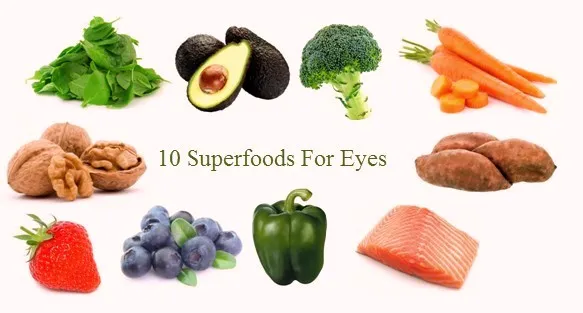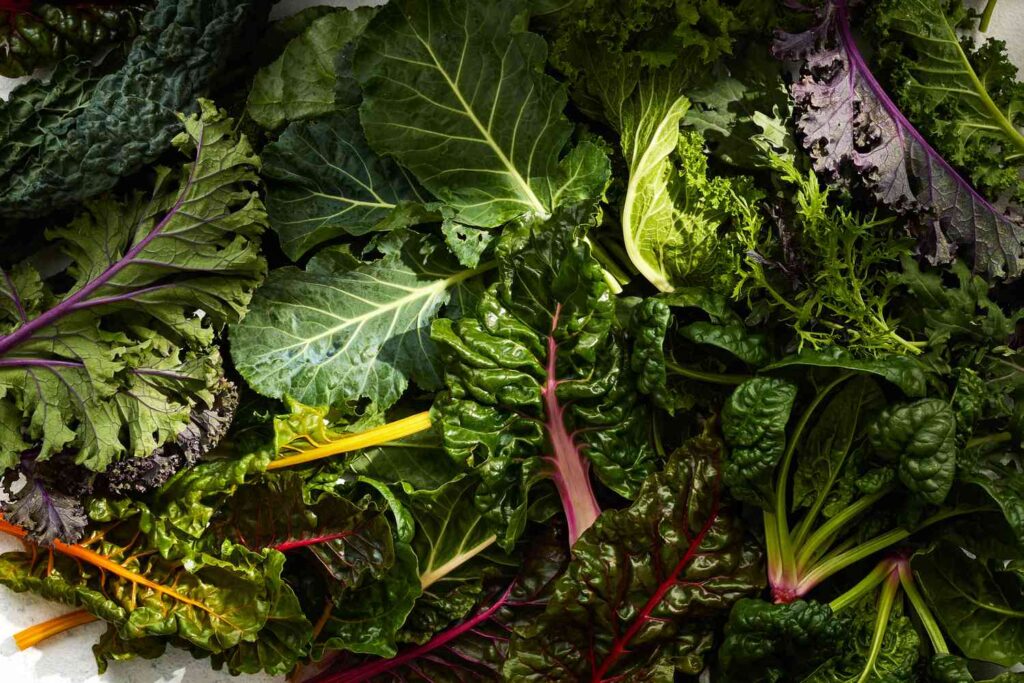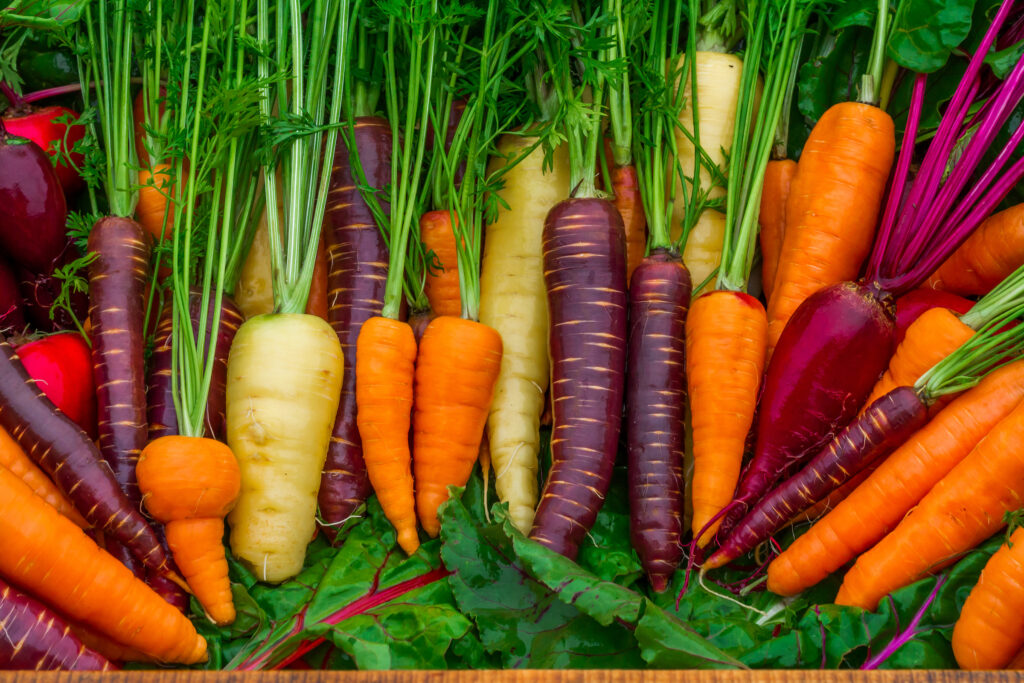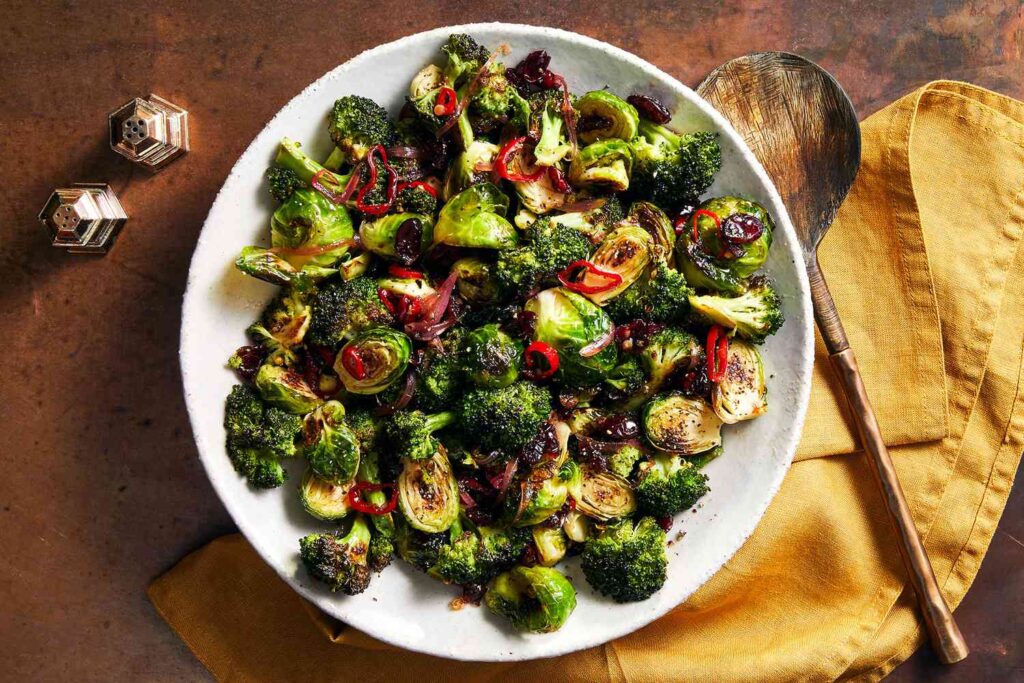
Eating the right natural foods rich in vitamins, antioxidants, and healthy fats plays a crucial role in boosting eye health and enhancing vision. Natural Foods That Boost Eye Health like lutein, zeaxanthin, vitamin A, C, E, zinc, and omega-3s protect eyes from damage, support retinal function, and reduce risks of diseases like macular degeneration and cataracts.
Key takeaways:
- Leafy greens like spinach and kale provide lutein and zeaxanthin to protect the retina.
- Orange vegetables contain beta-carotene, essential for night vision and eye surface health.
- Fatty fish supply omega-3 fatty acids which reduce inflammation and support tear production.
- Eggs offer a mix of eye nutrients including lutein, zeaxanthin, vitamin A, and zinc.
- Nuts, seeds, and citrus fruits deliver antioxidants that prevent oxidative damage.
- Zinc-rich foods like oysters and lean meats help transport vitamin A critical for vision.
Importance of Eye Health
Eye health is crucial for maintaining good vision and overall quality of life. Our eyes allow us to connect with the world, perform daily activities, and enjoy many experiences. Taking care of them helps prevent vision loss, detect diseases early, and avoid injuries.
Early Detection of Eye Diseases
Regular eye exams are vital. They can uncover silent eye problems like glaucoma, age-related macular degeneration, and cataracts before symptoms appear. Early diagnosis often leads to better treatment outcomes and can prevent permanent vision loss.
Essential Nutrients for Healthy Eyes
Before exploring the top foods, understanding the key nutrients that promote eye health is important. These nutrients work in different ways to protect, repair, and maintain eye tissues.
- Vitamin A and Beta-Carotene help maintain the cornea and improve night vision.
- Lutein and Zeaxanthin act as natural sunblock, protecting the retina from harmful blue light.
- Vitamins C and E are antioxidants that reduce damage from free radicals and pollution.
- Zinc helps transport vitamin A to the retina and supports night vision.
- Omega-3 Fatty Acids maintain retinal structure and reduce dry eye symptoms.
- B vitamins improve nerve function and lower risk of eye diseases.
10 Natural Foods That Boost Eye Health
Good nutrition plays a key role in protecting our eyes and maintaining clear vision. Certain foods contain specific nutrients that help prevent eye diseases and keep our eyes functioning well as we age. This article provides an in-depth look at 10 powerful foods for eye health, explaining why they are important and how best to include them in daily meals.
Leafy Green Vegetables: Kale, Spinach, Collards

Leafy greens are a top choice for eye health because they contain lutein and zeaxanthin, two antioxidants concentrated in the retina. These carotenoids act like natural sunglasses, filtering harmful blue light and protecting delicate eye tissues. Research shows regular consumption lowers the risk of age-related macular degeneration (AMD) and cataracts.
- Lutein and zeaxanthin accumulate in the macula, enhancing visual clarity and slowing degeneration.
- Spinach and kale are nutrient-dense, also providing vitamin C and E, which protect against oxidative damage.
- Eating these greens raw or lightly cooked with a little healthy fat, such as olive oil, improves nutrient absorption.
- Aim for a cup of cooked greens or two cups of raw leaves daily for maximum benefit.
Carrots and Orange-Colored Vegetables

Carrots are famously rich in beta-carotene, which your body converts into vitamin A. Vitamin A is essential for low-light vision and maintaining the surface of the eye to prevent dryness and infections. Other orange vegetables like sweet potatoes and pumpkins offer similar benefits.
- Beta-carotene helps form rhodopsin, a pigment in the retina responsible for night vision.
- Deficiency in vitamin A can lead to night blindness and dry eyes.
- Including carrots in meals two to three times a week supports consistent vitamin A levels.
- To optimize absorption, eat them cooked or with a little fat, for example, in roasted dishes or stews.
Fatty Fish: Salmon, Mackerel, Sardines
Omega-3 fatty acids, especially DHA and EPA found in oily fish, are vital for eye structure and function. They help maintain retinal cell membranes and reduce inflammation that can cause dry eye syndrome and other vision problems.
- Omega-3s support tear production and lubrication, alleviating dry eye symptoms common in aging.
- Studies indicate these fats may slow progression of AMD and diabetic retinopathy.
- Two servings of fatty fish per week are recommended to meet eye health needs.
- Choose sustainably sourced fish to minimize environmental impact.
Eggs
Egg yolks contain a concentrated mix of eye-supporting nutrients including lutein, zeaxanthin, vitamin A, and zinc. These nutrients work together to protect the retina from damage and support sharp vision.
- Regular egg consumption increases the density of protective pigments in the eye.
- Zinc in eggs supports the transport of vitamin A to the retina, critical for night vision and overall eye function.
- Eating two to four eggs per week provides measurable benefits.
- Balance intake with other nutrients and avoid excessive cholesterol concerns by moderating total consumption.
Citrus Fruits and Berries
Oranges, lemons, grapefruits, strawberries, and kiwi are rich in vitamin C, a potent antioxidant that protects the eye lens and retina from oxidative damage. Vitamin C also helps regenerate other antioxidants like vitamin E.
- High vitamin C intake is linked to lower risk of cataracts and AMD.
- Regular consumption of citrus fruits ensures the eye receives adequate protection against environmental stresses like UV light and pollution.
- Fresh, whole fruits are best; juices can lack fiber and sometimes added sugars.
- Incorporate servings daily through snacks or meals.
Nuts and Seeds: Almonds, Sunflower Seeds, Walnuts

These foods provide vitamin E and healthy fats that protect eye cells from oxidative stress and inflammation. Vitamin E also helps delay AMD and cataract formation.
- Almonds and sunflower seeds contain the highest vitamin E concentrations among nuts and seeds.
- Walnuts provide omega-3 fatty acids, contributing further to inflammation control.
- A small handful (about 1 ounce) daily is an effective serving size.
- Add nuts to salads, cereals, or as on-the-go snacks.
Oysters and Lean Meats
Zinc plays an essential role in transporting vitamin A from the liver to the retina, facilitating healthy vision. Oysters are among the richest sources of zinc, with lean meats like beef and chicken also providing substantial amounts.
- Adequate zinc intake supports immune function and helps prevent night blindness.
- Zinc deficiency is associated with poor retinal health and increased risk of eye diseases.
- Balance zinc intake within recommended limits as excessive consumption can cause side effects.
- Incorporate oysters and lean meats in meals two to three times weekly for benefits.
Bell Peppers
Bell peppers, especially red and orange varieties, are packed with vitamin C and antioxidants that protect eye tissues from damage. They also contain carotenoids that contribute to retina health.
- Vitamin C in peppers helps maintain collagen in the eye’s cornea and sclera.
- Raw or lightly cooked peppers preserve most nutrients and add vibrant color and crunch to meals.
- Include bell peppers in salads, stir-fries, or roasted dishes regularly.
Broccoli and Brussels Sprouts

These vegetables are loaded with vitamins C and E, along with lutein and zeaxanthin, contributing to strong antioxidant defense for the eyes. Their compounds reduce inflammation and scavenge free radicals.
- Broccoli contains indole compounds shown to help detoxify retinal cells and reduce macular risks.
- Both vegetables are best steamed or roasted to retain nutrient content.
- Integrate these cruciferous vegetables several times per week in meals.
Legumes: Black Beans, Kidney Beans, Chickpeas
Legumes provide zinc and bioflavonoids, which support retinal health and reduce inflammatory damage to the eyes. They are also a good source of protein and fiber.
- Their antioxidants help protect against light-induced retinal damage common in AMD.
- Beans and chickpeas also stabilize blood sugar levels, indirectly supporting eye health by reducing diabetic eye complications.
- Add legumes to soups, salads, or grain bowls regularly for eye and overall health.
Conclusion
Eating natural foods rich in essential nutrients is key to boosting eye health and maintaining clear vision. Leafy greens like spinach and kale provide lutein and zeaxanthin, which protect the retina from harmful light. Orange vegetables such as carrots and sweet potatoes offer beta-carotene, vital for night vision and eye surface health. Fatty fish supply omega-3 fatty acids that reduce eye inflammation and improve tear production. Eggs deliver a powerful combination of lutein, zeaxanthin, vitamin A, and zinc, all vital for retina protection. Citrus fruits and berries offer vitamin C, an antioxidant that shields eyes from damage.
Nuts and seeds contribute vitamin E and healthy fats that delay age-related changes. Zinc-rich foods like oysters and lean meats support vision by transporting vitamin A to the retina. Including bell peppers, broccoli, Brussels sprouts, and legumes adds antioxidants and minerals that further boost eye defense. Together, these foods create a comprehensive dietary strategy to preserve and enhance vision throughout life.
FAQs
What are the best natural foods to improve eye health?
Leafy greens (spinach, kale), carrots, sweet potatoes, fatty fish (salmon, mackerel), eggs, citrus fruits, berries, nuts, seeds, and legumes are top choices. These foods provide key nutrients like lutein, zeaxanthin, vitamin A, C, E, zinc, and omega-3s that protect and enhance vision.
How do lutein and zeaxanthin protect my eyes?
They are antioxidants found in the retina that act like natural sunglasses, filtering harmful blue light and reducing the risk of age-related macular degeneration and cataracts.
Can eating carrots really improve night vision?
Yes, carrots are rich in beta-carotene, which your body converts to vitamin A essential for good night vision and preventing night blindness.
How much omega-3 fatty acids should I consume weekly for eye health?
Aim for at least two servings of fatty fish per week, such as salmon or sardines, to support retinal health and reduce dry eye symptoms.
Are eggs beneficial for maintaining sharp vision?
Egg yolks contain lutein, zeaxanthin, vitamin A, and zinc, all of which help protect the retina and maintain clear vision.
Which fruits provide the most vitamin C for eye protection?
Oranges, lemons, grapefruits, strawberries, and kiwi are excellent sources of vitamin C, which protects the lens and retina from oxidative damage.
How does zinc support eye function and vision?
Zinc helps transport vitamin A from the liver to the retina, supporting night vision and overall eye health. Oysters, lean meats, and legumes are good sources.
Can nuts and seeds help prevent age-related eye diseases?
Yes, almonds, sunflower seeds, and walnuts provide vitamin E and healthy fats that protect eye cells from damage and may slow the progression of age-related macular degeneration.
Does cooking affect the nutrient content important for eye health?
Light cooking can actually increase the availability of some nutrients, like beta-carotene in carrots. However, avoid overcooking leafy greens to preserve lutein and zeaxanthin.
Is it better to get eye nutrients from food or supplements?
It’s usually best to get nutrients from a varied, balanced diet. Whole foods provide a complex mix of vitamins, minerals, and antioxidants that work together for optimal eye health. Supplements may be helpful if dietary intake is insufficient, but consult a healthcare provider before starting.
Reference
- “Omega-3 Fatty Acids and Eye Health: Opinions and Self-Assessment,” PMC, 2020.
https://pmc.ncbi.nlm.nih.gov/articles/PMC7230711/ - “Omega-3 Fatty Acids for Eye Health: Benefits & Sources,” Dr. Arwal Blog, 2025.
https://www.dragarwal.com/blog/eye-wellness/the-role-of-omega-3-fatty-acids-in-preventing-eye-disease/ - “Omega-3 Fatty Acids & the Important Role They Play,” Cleveland Clinic, 2025.
https://my.clevelandclinic.org/health/articles/17290-omega-3-fatty-acids - “Omega-3 and your eyes,” All About Vision, 2019.
https://www.allaboutvision.com/eye-care/vision-health/nutrition/omega-3-fatty-acid/
Autum Harkins is a CNS with an MS in Clinical Nutrition from Maryland University of Integrative Health (2017) and 8 years in integrative clinics. She develops individualized protocols for deficiencies, digestive health, and women’s wellness, prioritizing third-party-tested supplements. Autum contributes to case series and webinars and mentors practitioners on lab interpretation. Credentials: CNS Board (ANA/BCNS) number, state nutrition licensure where applicable, and professional memberships with links.

